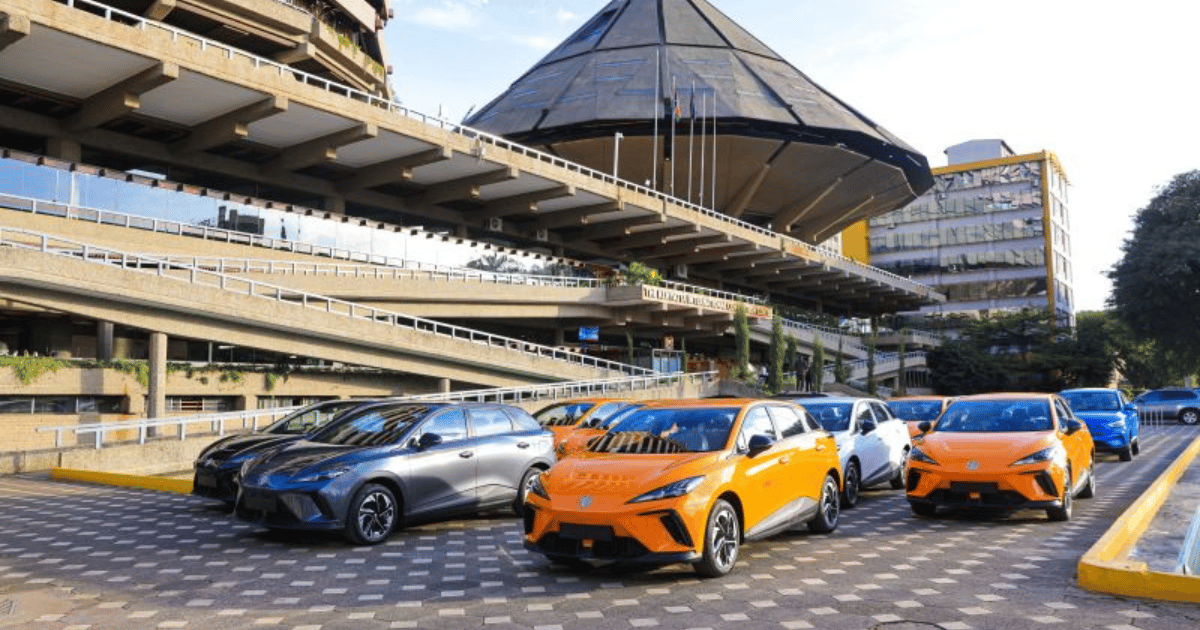- Mobility Rising
- Posts
- We have ranked Africa’s leading EV countries
We have ranked Africa’s leading EV countries

From the newsletter
Kenya leads Africa in electric mobility in the latest Mobility Rising country rankings. We order nations based on ten key parameters, namely the number and cumulative size of factories; number and impact of policies; funding deals, size and type; number of events; number of jobs advertised; and number of top ten mobility company headquarters.
The ranking is based on external and proprietary sources, including Mobility Rising staff based in locations across the continent, as well as public sources such as LinkedIn. It is updated monthly.
Kenya was propelled to the top of the ranking by having added the highest number of EV production capacity during the period, most funding deals, jobs advertised and number of top 25 EV firms in Africa in our ranking.
More details
Kenya scored 2,541 points, which is 931 points higher than its closest competitor. The East African country had nine companies out of the continent’s top 25 EV companies (the highest), while 20 jobs were advertised in Kenya during the month, also the highest. Five Kenyan companies closed funding deals during the period, which is the highest, totaling $1.1 million. One assembly project in the country was also announced, with a capacity to produce 3,000 electric tri-cycles per year.
Kenya’s neighbour Uganda emerged second with a score of 1,610. Uganda excelled on the policy side, introducing a policy to lower taxes on imported components used to make electric two-wheelers. Its ranking was improved by a loan of $1 million secured by Zembo during the period. At the same time, Uganda had six companies in the top 25 firms, the joint second highest, and also saw 12 jobs advertised in the sector, also the second highest behind Kenya.
Two funding deals signed by Nigerian companies over the last one month helped the west African country to the third position with 1,405. The two firms raised $0.5 million. Nigeria also tied with Uganda with the joint second highest number of jobs advertised during the period (12) as well as the number of companies in the top 25 electric mobility companies on the continent (six).
Ghana followed closely in fourth, racking up a score of 1,350. This position was primarily propelled by one funding deal, which raised $5 million, the highest on the continent during the period. There were also 12 jobs advertised in Ghana during the period, while the country had four companies listed in the top 25 EV firms in Africa.
Ethiopia and Rwanda emerged fifth and sixth with a score of 602 and 500 respectively. There were five jobs advertised in Ethiopia, which had four companies in the top 25 firms. An Ethiopian company also raised $0.2 million. Rwanda had six companies in the top 25 companies and had five jobs advertised during the period.
Egypt (300), Cameroon (101), South Africa (100) and Tanzania (100) closed the top ten countries. A total of 70 jobs were advertised during the period, a decline from 85 in the previous period. A total of $8.1 million was raised by EV companies on the continent during the period, a sharp decline from $27.8 million in the previous month.
Our take
While Kenya and Uganda currently dominate East Africa’s EV industry, Tanzania is gradually emerging as a significant player. It will likely feature more prominently in our future rankings.
EV companies are shifting to local production in Africa, creating a new pool of jobs in the industry. Countries that incentivise local assembly and manufacturing and implement sufficient training programmes will rise through our rankings quickly.
Investor funding is drying up, which has left a number of inadequately capitalized EV startups teetering on the brink of collapse. Local investors and public institutions should step up to fill the gap left by foreign capital.